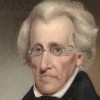We should keep silent about those in power; to speak well of them almost implies flattery; to speak ill of them while they are alive is dangerous, and when they are dead is cowardly.
[L’on doit se taire sur les puissants: il y a presque toujours de la flatterie à en dire du bien; il y a du péril à en dire du mal pendant qu’ils vivent, et de la lâcheté quand ils sont morts.]
Jean de La Bruyère (1645-1696) French essayist, moralist
The Characters [Les Caractères], ch. 9 “Of the Great [Des Grands],” § 56 (9.56) (1688) [tr. Stewart (1970)]
(Source)
(Source (French)). Alternate translations:
The less we talk of the powerful, the better; what we say good of them, is often flattery: 'Tis dangerous to speak ill of 'em while they live, and villainous when they are dead.
[Bullord ed. (1696)]
The less we talk of the Great and Powerful, the better; what good we say of them is often Flattery 'Tis dangerous to speak ill of them while they are alive, and villainous when dead.
[Curll ed. (1713)]
The less we talk of the Great and Powerful, the better; what good we say of them is often Flattery: It is dangerous to speak of of them while living, it is base to insult over them when dead.
[Browne ed. (1752)]
The less we talk of the great and powerful the better; if we say any good of them, it is often almost flattery; it is dangerous to speak ill of them whilst they are alive, and cowardly when they are dead.
[tr. Van Laun (1885)]
Quotations about:
powerful
Note not all quotations have been tagged, so Search may find additional quotes on this topic.
With tread imperial, impartial pallid Death
knocks at the doors of cottages and palaces. [Pallida mors æquo pulsat pede pauperum tabernas
Regumque turres.]Horace (65-8 BC) Roman poet and satirist [Quintus Horacius Flaccus]
Odes [Carmina], Book 1, # 4, l. 13ff (1.4.13-14) (23 BC) [tr. Alexander (1999), “To Lucius Sestius”]
(Source)
(Source (Latin)). Alternate translations:
Death knocks as boldly at the Rich mans dore
As at the Cottage of the Poore,
[tr. Fanshaw (1666), "To L. Sextius, a Consular Man"]
With equal foot, Rich friend, impartial Fate
Knocks at the Cottage, and the Palace Gate.
[tr. Creech (1684), "He adviseth his Friend to live merrily"]
Pale Death, impartial, walks his round: he knocks at cottage-gate
And palace-portal.
[tr. Conington (1872)]
Pale death knocks at the cottages of the poor, and the palaces of kings, with an impartial foot.
[tr. Smart/Buckley (1853), "To Sextius"]
Death comes alike to all, — to the monarch's lordly hall,
Or the hovel of the beggar, and his summons none shall stay.
[tr. Martin (1864), "To Sestius"]
But all the while, with equal step, pale Death strides on unpausing,
Knocks at thé lowly shed and regal tower.
[tr. Bulwer-Lytton (1870), "To Lucius Sestius"]
Pale death, with impartial step, knocks at the hut of the poor and the towers of kings.
[E.g. (1893)]
The kingly tower alike
And pauper's hut pale Death will strike.
[tr. Gladstone (1894), "To the Rich Sextius"]
Pale Death with foot impartial knocks at poor men's dwellings.
And tow'rs of monarchs.
[tr. Phelps (1897), "To Sestius"]
Pale death with foot impartial strikes at the huts of paupers and
Kings' towers.
[tr. Garnsey (1907), "To Sestius"]
With equal foot pale Pluto knocks at hovels of the poor,
And at the tyrant's towers
[tr. Marshall (1908), "Spring"]
Pale Death with foot impartial knocks at the poor man’s cottage and at princes’ palaces.
[tr. Bennett (Loeb) (1912), "Spring's Lesson"]
Marching with step impartial, Death's pale Presence raps its call
At doors of rich and poor alike.
[tr. Mills (1924)]
Hold! Pale Death, at the poor man's shack and the pasha's palace kicking
Impartially, announces his arrival.
[tr. Michie (1964)]
Death raps his bony knuckles, bleached,
Indifferent, on any man’s door, a palace or a hut.
[tr. Raffel (1983)]
Revenant white-faced Death is walking not knowing whether
He's going to knock at a rich man's door or a poor man's.
[tr. Ferry (1997)]
Pale death knocks with impartial foot, at the door of the poor man’s cottage,
and at the prince’s gate.
[tr. Kline (2015), "Spring"]
Conservatism consists of exactly one proposition, to wit:
There must be in-groups whom the law protects but does not bind, alongside out-groups whom the law binds but does not protect.
There is nothing more or else to it, and there never has been, in any place or time.
Frank Wilhoit (contemp.) American composer and software architect
Crookedtimber.org, “The Travesty of Liberalism,” Comment #26 (22 Mar 2018)
(Source)
All things being equal, those who have more power are liable to sin more; no theorem in geometry is more certain than this.
[Caeteris paribus, on trouvera tousjours que ceux qui ont plus de puissance sont sujets à pécher davantage; et il n’y a point de théorème de géométrie qui soit plus asseuré que cette proposition.]
Gottfried Wilhelm Leibniz (1646-1716) German mathematician, philosopher, diplomat, polymath
Letter to Ernst, Landgrave of Hessen-Rheinfels (9 Jul 1688) [tr. Fasnacht (1952)]
(Source)
Quoted by John Dalberg, Lord Acton (and thus often attributed to him).
Acton's quotation was in his Inaugural Lecture on History, Cambridge (11 Jun 1895). In the lecture, after mentioning the academic precept "never be surprised by the crumbling of an idol or the disclosure of a skeleton; judge talent at its best and character at its worst; suspect power more than vice," he footnotes this Leibniz quotation (in its source French, with the Latin introduction). This was in turn translated into English in G. E. Fasnacht, Acton's Political Philosophy, ch. 6 (1952), after which it became erroneously cited by others to Acton.
The source letter (in which Leibniz is discussing the Jesuits) is collected in Gottfried Wilhelm Leibniz, Sämtliche Schriften und Briefe, Series 2, vol. 2, p. 278 (2009), reprinted in Stephen Voss, The Leibniz Arnauld Correspondence (2016) (the Source noted), which offers this alternate translation:
Other things being equal, one will always find that those who have more power are subject to sin more. And there is no theorem of Geometry more sure than this proposition.
[tr. Voss (2016)]
THIRD FISHERMAN: Master, I marvel how the fishes live in the sea.
FIRST FISHERMAN: Why, as men do a-land: the great ones eat up the little ones.William Shakespeare (1564-1616) English dramatist and poet
Pericles, Act 2, sc. 1, l. 28ff (2.1.28-29) [with George Wilkins]
(Source)
People at the top do not want to share their power. They’ve always got some marvellous reason: I’m following my religion; I’m following the laws of economics. Even Stalin: I’m representing the vanguard of the working class, so please don’t cause trouble. That is the battle that every generation has, and yet we mustn’t be pessimistic about it.
Tony Benn (1925-2014) British politician, writer, diarist
“Hope Is the Key,” Interview, Share International (Jan 2003)
(Source)
Throw a few chairmen of the board in jail for polluting the air and water, and you’ll see the pollution disappear quite rapidly. … You would also probably see some pretty drastic prison reform.
Power always Sincerely, conscientiously, de très bon foi, believes itself Right. Power always thinks it has a great Soul and vast Views, beyond the Comprehension of the Weak; and that it is doing God Service when it is violating all his Laws.
John Adams (1735-1826) American lawyer, Founding Father, statesman, US President (1797-1801)
Letter to Thomas Jefferson (2 Feb 1816)
(Source)
de très bon foi = "very candidly"
Do not meddle in the affairs of wizards, for they are subtle and quick to anger.
J.R.R. Tolkien (1892-1973) English writer, fabulist, philologist, academic [John Ronald Reuel Tolkien]
The Lord of the Rings, Vol. 1: The Fellowship of the Ring, Book 1, ch. 3 “Three Is Company” [Gildor, to Frodo] (1954)
(Source)
ROSENCRANTZ: Many wearing rapiers are afraid of goosequills.
William Shakespeare (1564-1616) English dramatist and poet
Hamlet, Act 2, sc. 2, l. 366ff (2.2.366) (c. 1600)
(Source)
Being powerful is like being a lady. If you have to tell people you are, you aren’t.












